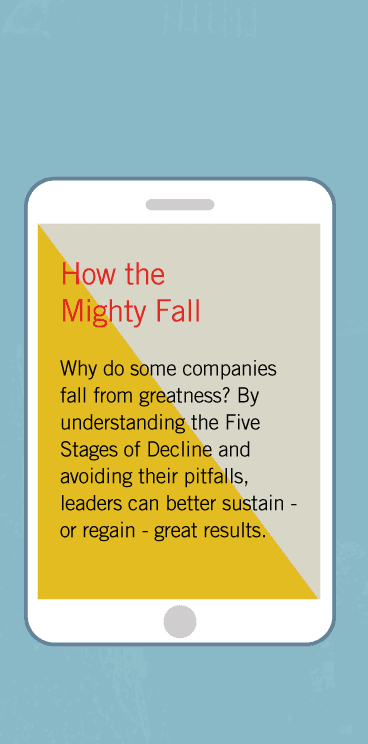How Great Companies Tame Technology
But when I asked Iverson, who, sadly, passed away last week, to name the top five factors that led to Nucor’s transformation from a good company to a great one, where do you think he put technology? Not first. Not second. Not third, fourth or even fifth. In an 8,000-word interview transcript, the word “technology” appears only once. And that came at the end of the interview when Iverson mentioned it as an afterthought, which he then used to segue back to his primary passion: the unique culture of the company and its people. He seemed more proud of the fact that Nucor had become a Fortune 500 company with only four layers of management and a headquarters staff of fewer than 25 people crammed into a cheap veneer office the size of a small dental suite than he was of his bold investments in continuous thin-slab casting technologies that had revolutionized the industry.
At first, my research team and I considered the Iverson interview to be an aberration; perhaps he was simply too modest. But then we began to notice a pattern. In 84 interviews across 11 companies that made the leap from mediocrity to greatness (defined as delivering returns to investors at least three times greater than the general stock market over 15 years), fully 80 percent of the executives we interviewed didn’t even mention technology as one of the top five factors in their companies’ transformation.
The really odd thing about this is that, like Nucor, every company in our good-to-great study had in fact become a pioneering leader in the use of technology. Kroger, with scanners tied into its information systems; Gillette, with laser-based manufacturing; Wells Fargo, with Internet banking, and so forth. Yet despite being lauded for their technological prowess, the executives of these companies dwelled little on technology as a key variable.
Puzzled, we looked more deeply into the data and uncovered a fascinating finding: the good-to-great companies became pioneers in the application of technology only after they made the leap to breakthrough results, usually years after. Nucor, for instance, made its bold bet on continuous thin-slab casting more than a decade after it began its climb to steadily beating the market. And that brings me to the central point. When we stand back to look at the rise and fall of great corporations over the long course of history, we find that technology is an accelerator of greatness already in place, never the principal cause of greatness or decline. Great companies first build a culture of discipline—disciplined people who engage in disciplined thought and who take disciplined action—and create a business model that fits squarely in the intersection of three circles: what they can be the best in the world at, a deep understanding of their economic engine and the core values they hold with deep passion. They then use technology to enhance these pre-existing variables, never as a replacement.
In the late 1990s, our business culture became infected with the idea that a New Economy driven by new technologies had made the eternal verities of management obsolete. But the question is not “What is the role of technology in building great companies?” Rather, the real question is “How do those who build great organizations think differently about technology?” Bertrand Russell once said, “Most men would rather die than think. Many do.” It’s a quote that many would have done well to keep in mind during the last half of the 1990s, and one that we would do well to keep in mind when The Next Big Thing comes rolling around.






